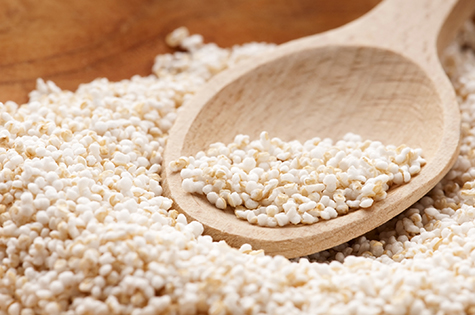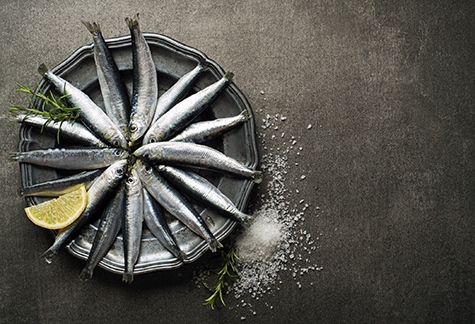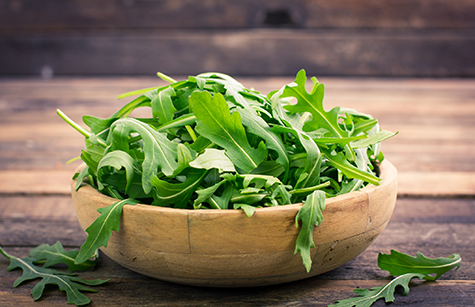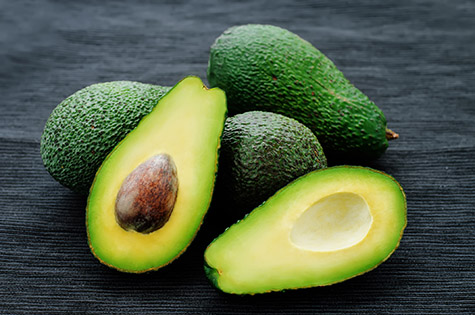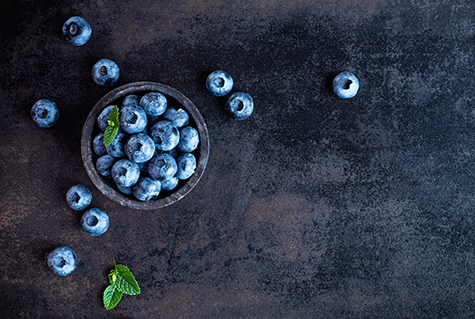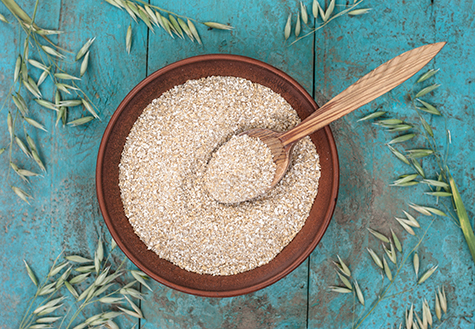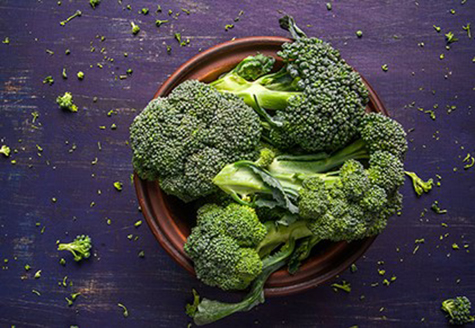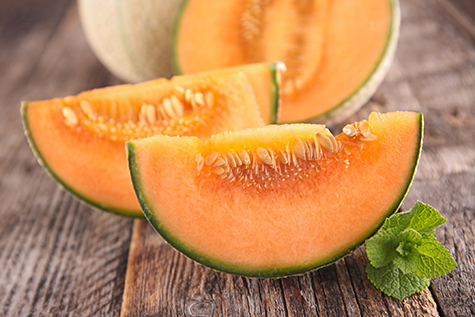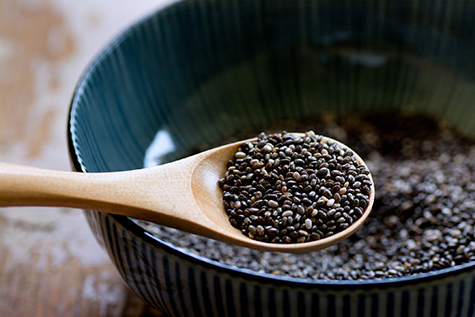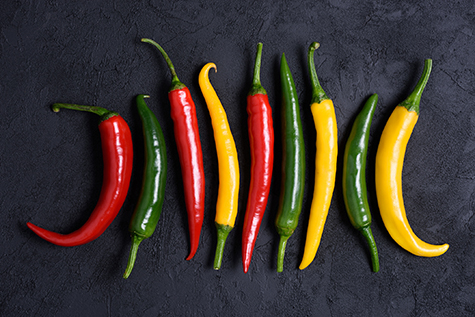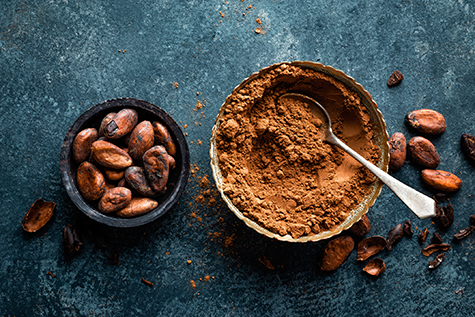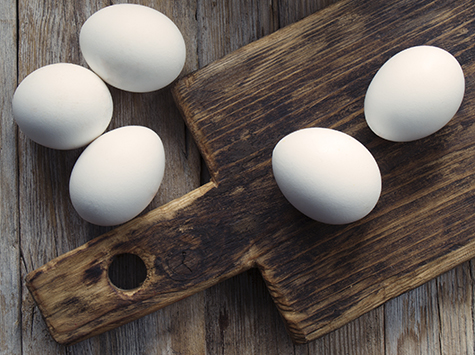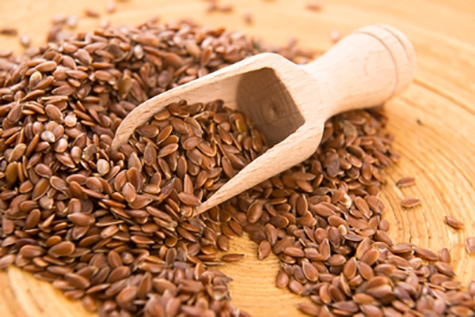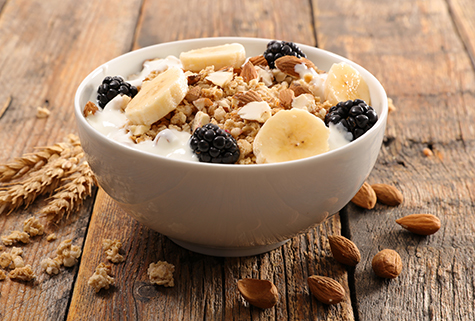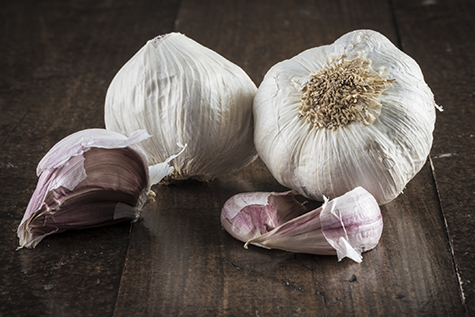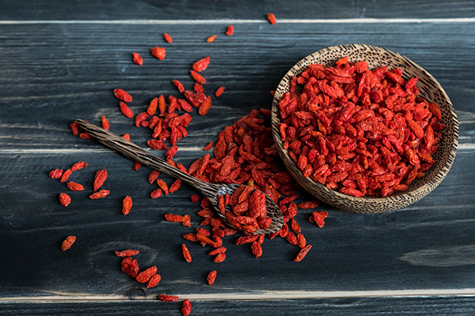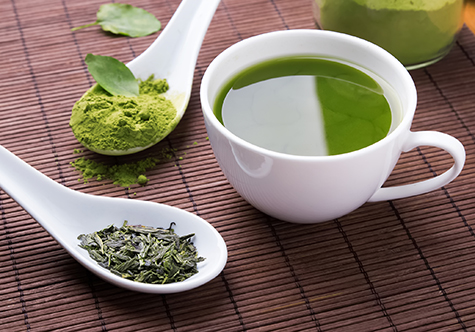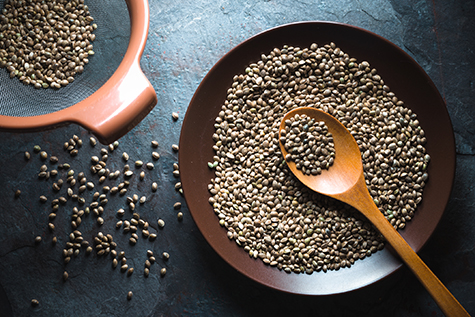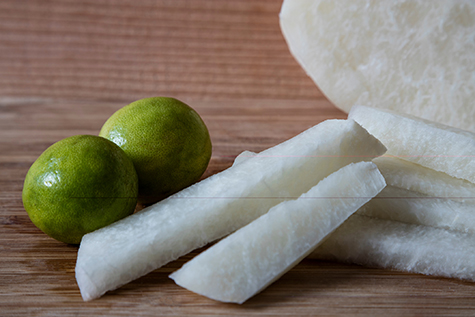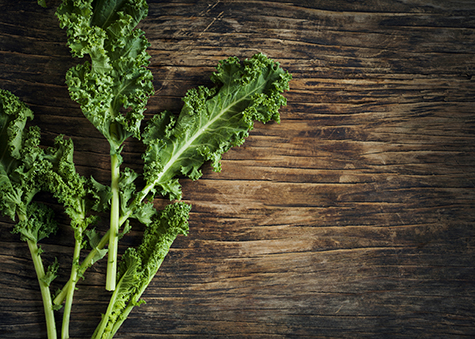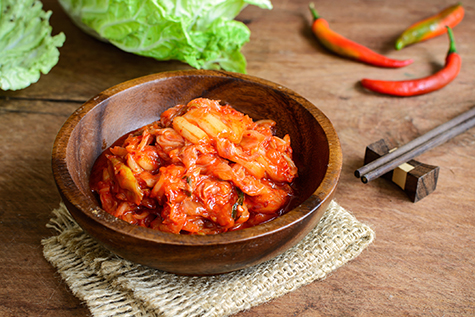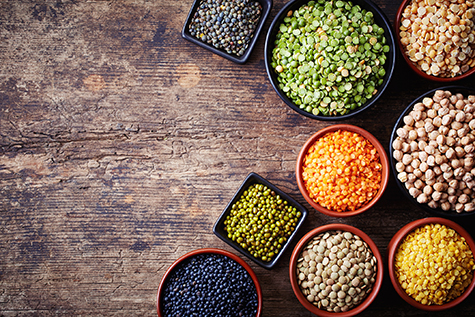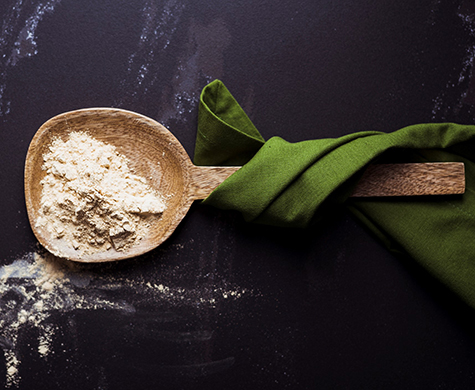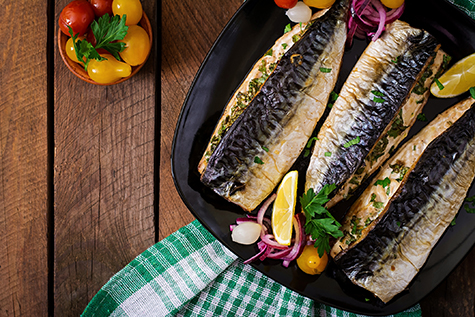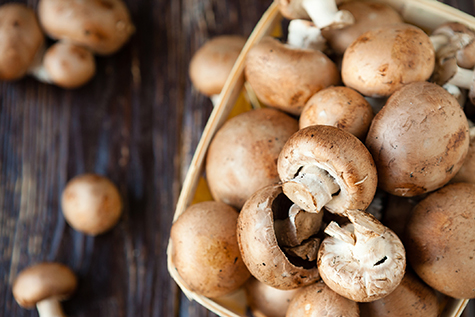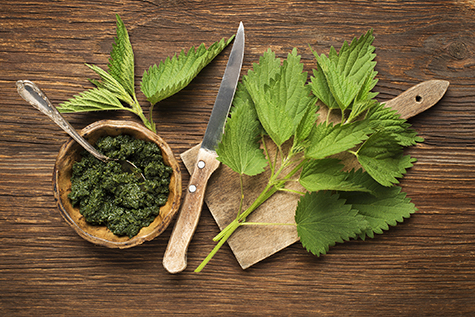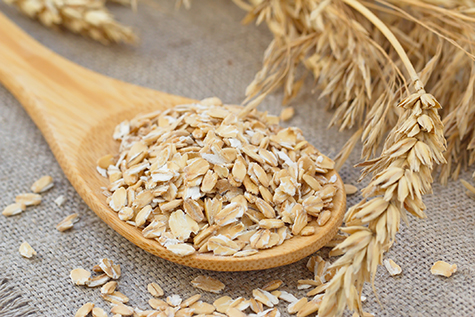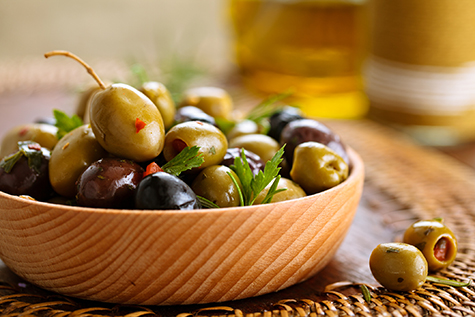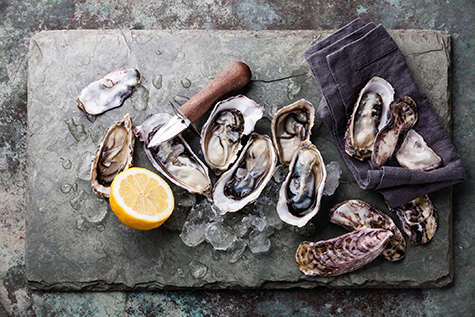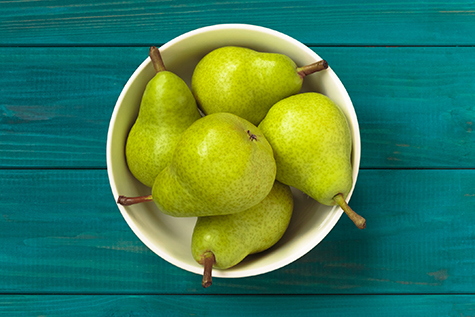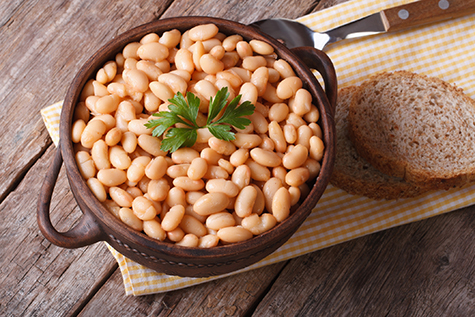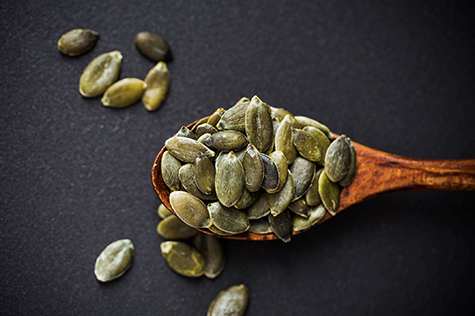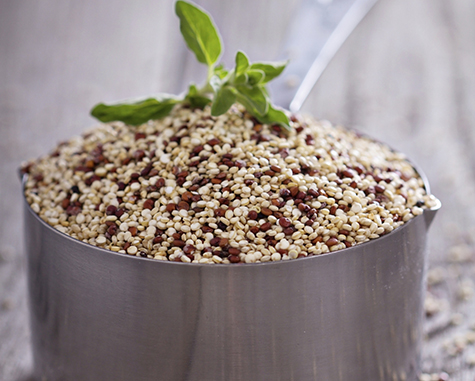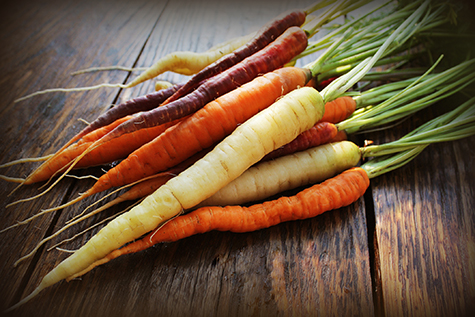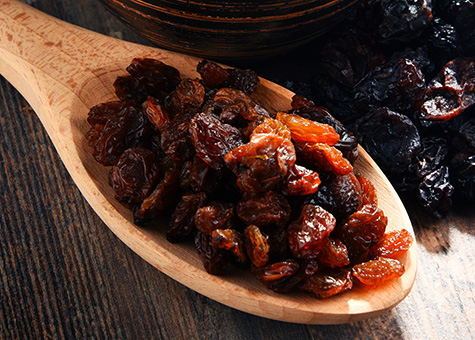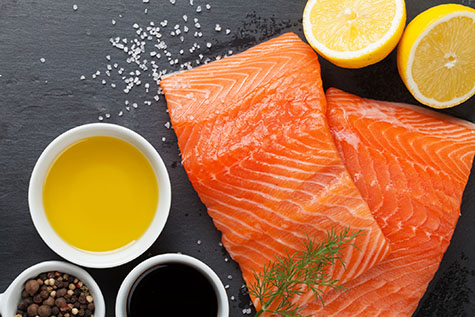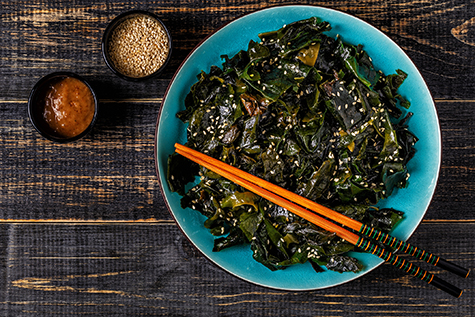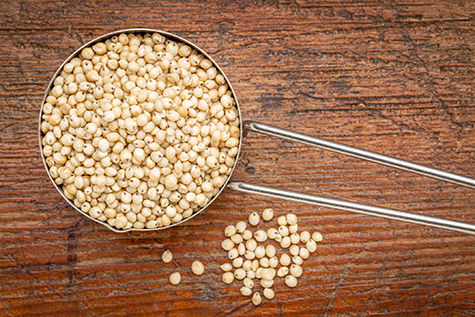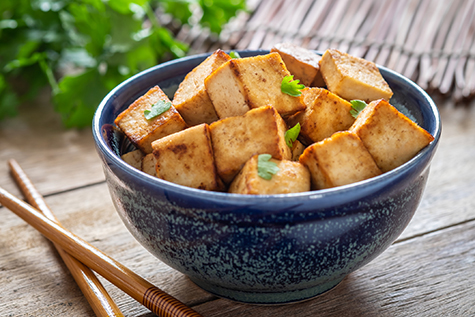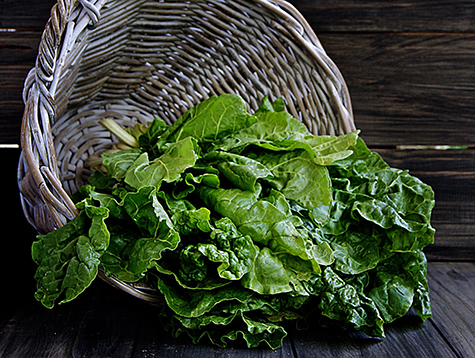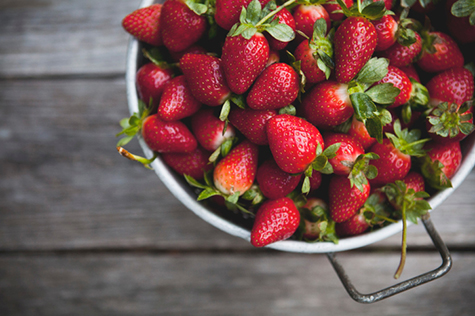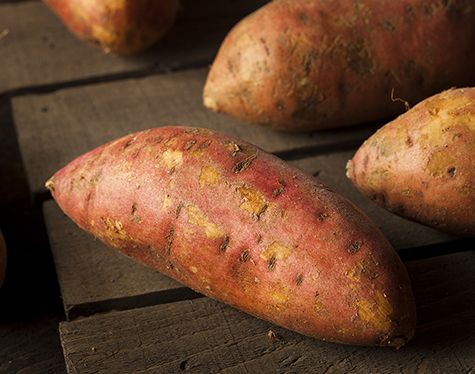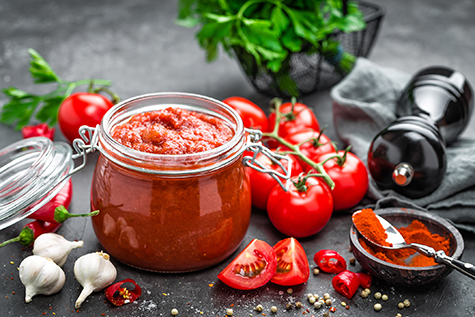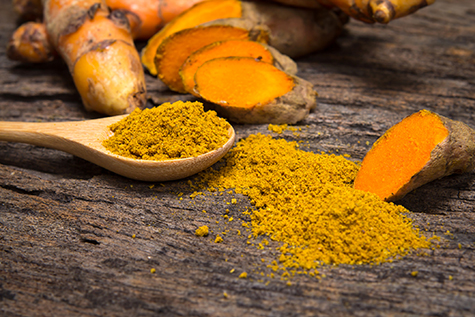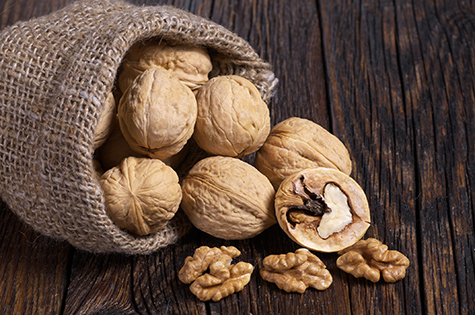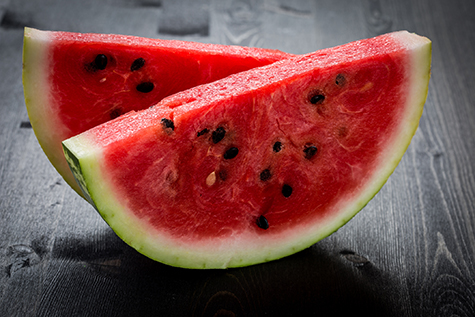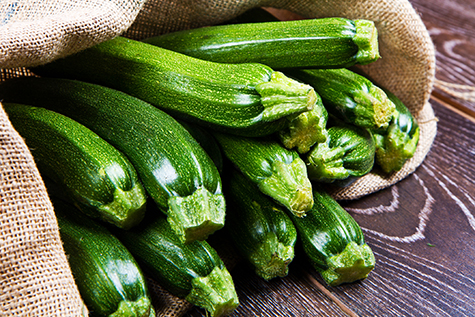Want To Know the Top 50 Foods for Fertility?

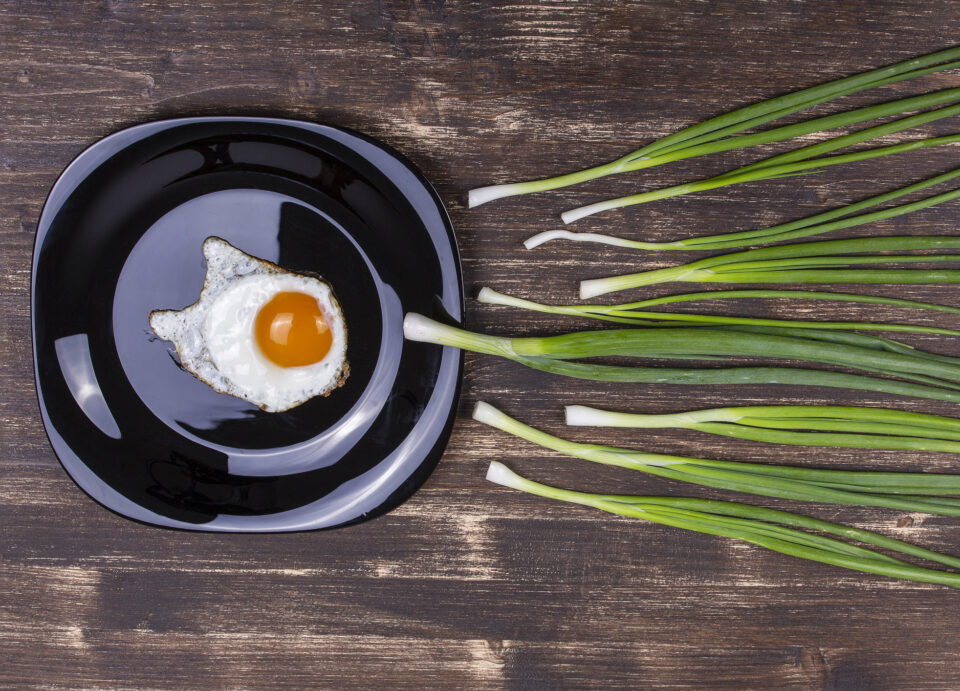
Foods fuel the body in so many ways and that includes fertility – for both men and women. Even if fertility isn’t top on your priority list currently, keeping these reproductive systems healthy is still important. Foods that contain energy and certain vitamins, minerals and antioxidants proven to be especially important for optimizing health and reproductive systems in both men and women which is why these foods top the list of 50 foods critical for fertility.
1. Amaranth
Technically a ‘pseudocereal,’ this ancient grain is making a comeback in modern-day cuisine and it offers fertility support as well. You’ll find it popping up in recipes from breakfast porridge to salads and side-dishes for lunch or dinner. This whole grain is rich in nutrients critical for fertility including magnesium, iron, selenium and copper.
2. Anchovies
Low levels of healthy omega-3 fatty acids have been linked to infertility in men in some studies. Whether it’s just the low levels of omega 3 or the imbalance of omega 3 to omega 6 fatty acids is yet to be explored but one thing we know is that getting enough of these healthy fats in the diet is critical. Anchovies are small, cold water fish high in omega-3 fatty acids so if you enjoy them, include them as a snack on crackers or salad.
3. Arugula
You may have heard that this bitter veggie is actually a cruciferous vegetable so it’s both that AND a leafy green – double bonus. Arugula contains a special compound called erucin that has shown anti-inflammatory properties in addition to fertility supportive nutrients, specifically folate. Women should get at least 400mg per day to reduce the risk of neural tube defects as a fetus develops. 1 cup can get you about 15% of your daily needs.
4. Avocado
Bring on everyone’s favorite “fruit” because there is some evidence that both the type of fat they contain and the vitamins inside help fertility – especially in men. Rich in vitamins B3, B5 and B6, avocados are certainly nutritious but they also contain unsaturated fats. Higher intake of saturated fats is linked to infertility in men in one study so replacing those types of foods with avocado could be beneficial.
5. Bell Pepper
Choose your favorite color of peppers because any type can help support fertility in men and women. All peppers are rich in vitamin C – even more so than citrus or berries. Not only are they packed with vitamin C, peppers contain other nutrients including B6, folate, and pantothenic acid. Versatile, use bell peppers in breakfast scrambles, stir fries, soups and stews, as a steamed side dish or a snack for dipping.
6. Blueberries
The nutrients in all berries may support fertility but blueberries have some unique properties that really support reproductive health. They are an amazing source of antioxidants, rich in vitamin C. Researchers believe one reason that blueberries have been shown to aid in fertility may be due to the high antioxidant content from anthocyanins. Be sure to add them as a simple snack, to cereal, salads or blended into sauces for main dishes.
7. Bran
Complex carbs are the body’s friend for many reasons but they may also play a role in fertility. Whole grains show up again and again in fertility studies and bran is no exception. Rich in so many nutrients critical for fetal development including iron, B6, magnesium and phosphorus, this high-fiber whole grain can be used in muffins and cereal for a quick, simple way to boost fiber intake.
8. Brazil Nuts
Antioxidants generally seem to benefit fertility and selenium is no exception. One single Brazil nut provides over 100% of the Recommended Daily Allowance (RDA) of selenium – a mineral that supports the immune system and acts as an antioxidant to quench free radical damage. They also contain tocopherol/vitamin E which is important to fertility and fetal development.
9. Broccoli
Simply put, broccoli and other cruciferous veggies can help balance fertility hormones and detoxify the body. ‘Eat your broccoli’ is good advice because it contains vitamin C shown to protect sperm quality as well as help women’s bodies absorb more iron. Eating these kinds of foods can really help prepare a woman’s body to carry a child.
10. Cantaloupe
All melon could be considered pro-fertility due to the vitamin, mineral and antioxidant content. The orange color of cantaloupe indicates that it contains important antioxidant carotenoids like vitamin A that are known to benefit fertility. Packed full of vitamin C and fiber as well, include cantaloupe in the diet to support your general health, too.
11. Chia seeds
Chia seeds are versatile and rich in energy and nutrients but they’ve also got a secret ingredient: omega-3 fatty acids. It’s no wonder that Aztec warriors carried them along on long journeys and even gave them the name “chia” which means “strength”. Studies have shown that omega-3 fatty acids are helpful particularly for male fertility.
12. Chilis
Colorful, spicy chilis may also aid in fertility in addition to adding a kick to your recipes. Rich in vitamin C, – even more so than oranges – chilis support sperm quality in men and help women’s bodies absorb iron from the foods they eat. In this way, chilis are important for fertility of both sexes and should be included daily if you enjoy them.
13. Cocoa
Everyone’s favorite chocolate treat is also helpful for fertility. A 35-gram chocolate bar can provide more than 20% of the recommended amount of zinc. Studies show that zinc plays a critical role in hormone balance – particularly of testosterone so including cocoa in the diet could be especially important to men.
14. Eggs
One of the best sources of the important nutrient choline is egg yolks. Among other nutrients, including protein, zinc, and vitamins A and D, the yolks of eggs may play a role in fertility because of their choline content. Current research shows that up to 95% of pregnant women are consuming less than the adequate intake levels of this nutrient which could help reduce risk for neural tube defects.
15. Flax
There’s only a handful of plant-foods that contain omega-3s and flax is one of them. This healthy fatty acid has proven particularly supportive of male fertility – the quality of your fat intake matters! Keep in mind that the body cannot break flaxseeds open during digestion, so grinding them is the best way to get access to their health effects.
16. Fortified cereal
As far as this list goes, cereal is definitely a much more ‘processed’ food but it is actually an important source of nutrients for those focused on fertility factors. Because many cereals are fortified with iron, calcium and folic acid, eating a bowl of cereal each day when you’re trying to conceive may be supportive. Look for whole grain, low added sugar, fortified cereal because its rich in complex carbohydrates and nutrients, providing extra b-vitamins and iron.
17. Garlic
Famous for supporting cardiovascular health, garlic can actually increase optimal blood flow to the reproductive system in addition to other organs in the body. Garlic does contain nutrients important to fertility such as manganese, B6 and vitamin C so add it to sauces, salad dressing, spread it on veggies or bread or roast it up on its own.
18. Goji Berry
All fruits and veggies are supportive of fertility because of the variety of fiber, vitamins, minerals and antioxidants they all contain. Some fruits and berries do contain special properties however, and goji is one of them. These special berries contain amino acids, lots of vitamin C and even iron so they’re a wonderful addition to a well-rounded fertility diet. Bonus: they’re rich in their own unique antioxidants to help calm any inflammation present.
19. Green Tea
Green tea is packed with antioxidant EGCG which may positively influence fertility. Because it contains these powerful compounds called, it may help lower oxidative stress in the body which can be particularly supportive of sperm health and quality. Enjoy green tea as part of your fertility diet plan if you are a man or a woman trying to conceive.
20. Hemp Seeds
We know that omega 3’s are important for fertility, especially in men because it’s been shown to be one piece of the puzzle on studies done in infertility clinics. Crunchy little hemp seeds are a natural source of essential anti-inflammatory omega-3 fatty acids helpful in calming inflammation in the body. These nutty-flavored seeds are perfect for sprinkling on cereal, oats or adding to granola.
21. Jicama
A native of Mexico, this root vegetable’s name starts with a “j” but it’s pronounced with an “h” sound. Achieving and maintaining a healthy weight can be an important part of the fertility picture for many people so chopping up jicama and dipping it in guacamole other healthy dips could be a healthy, nutrient-rich snack that also happens to be high in vitamin C – important for fertility in both sexes.
22. Kale
Green leafies keep showing up again and again in a healthy fertility diet and kale is no exception. If anything, it is more nutrient rich than other related veggies. You can’t go wrong by choosing the variety you enjoy the most – curly, baby or dinosaur – because of its high folate and vitamin C content. Kale could be an especially important food for women trying to conceive.
23. Kimchi
Fermented foods are an important part of the fertility picture because the most important thing is to make sure that your own health is completely intact before starting a reproductive journey. Gut health is crucial to being able to absorb and assimilate all the nutrients you eat so soothing the digestive tract with good bacteria is a good place to start. A traditional Korean fermented cabbage, kimchi contains good bacteria that can help support your gut microbes and keep the digestive system running smoothly.
24. Lentils
Lentils are a dietary underdog and when it comes to fertility diets, they should absolutely be included. Legumes like lentils are rich sources of fiber and also contain B-vitamins for neurological support for both mother and growing baby. One cup of lentils provides 90% of your daily B-vitamin folate needs which can help protect against the development of neural tube defects.
25. Maca
There’s a reason that maca root was used in ancient civilizations in South America for energy, vitality and fertility. Research supports that ground maca root which often is sold in powder form, can actually make a difference. Native to Peru, maca is often known to support fertility and balance hormones but keep in mind that it’s not safe for use in women who are pregnant or breastfeeding.
26. Mackerel
Fish and plant-based sources of omega 3’s top this list of foods that boost fertility, especially for men, and mackerel is another amazing source of this critical nutrient. These small, cold water fish are naturally low in mercury and high in omega-3 fatty acids so it’s a great choice at your next sushi restaurant visit, especially for those trying to conceive.
27. Mushrooms
All edible mushrooms contain some very special compounds for fertility, specifically around boosting the immune system for optimal health even before you conceive. Mushrooms contain compounds called beta-glucans, a type of polysaccharide or carbohydrate, that uniquely support our body’s natural defense system. Add mushrooms to scrambles, soups, and salads to easily access this supportive compound.
28. Nettles
Not everyone has access to the leafy green, nettles, but if you do, they’re a fertility-supporting powerhouse. Native to the Pacific Northwest and other wooded areas, nettles are high in vitamin C and iron – especially important to female fertility. Be sure to correctly process this stinging plant, however, because it must be cooked or dried in order to remove the negative effects that you get from touching it in the woods.
29. Oats
Carbs fuel the brain and body so during times of trying to conceive, it often doesn’t make sense to be on a low or no carb diet. Aside from providing critical energy, oats are another whole grain that contain immune-boosting compounds and b-vitamins critical to fetal development. Oats are a wonderful way to start the day or to add into a snack when you need a boost.
30. Olives
There’s no doubt about it, the fat people eat affects male fertility. Studies done in fertility clinics have shown that the type of fat men eat actually affect the quality of sperm. Olives are a rich source of nutrients in addition to unsaturated fatty acids that are critical to healthy eating for men trying to conceive.
31. Oysters
Studies show that zinc is a critical mineral for fertility, particularly in males. It plays a role as an antioxidant in the body but also in balancing hormones such as testosterone. Researchers have referred to it as “essential” for male fertility. Oysters are among the richest sources of this important mineral so feel free to indulge in this shellfish for your daily dose.
32. Pears
A fiber-rich fruit, pears also support fertility with the variety of nutrients they contain. Vitamin C is a major reason to eat pears and studies have shown that vitamin C plays a role both in male and female fertility. Many of the pear’s benefit, including most of the fiber and antioxidant flavonoids, are contained in the skin of the fruit so be sure to eat your pears unpeeled for maximum benefit (and even more fiber).
33. Pinto Beans
Beans of all kinds are helpful for a variety of systems in the body due to their antioxidant status, high levels of fiber and vitamins and minerals. Fertility is no exception. Beans are a plant-based source of zinc, which studies show is a critical mineral for fertility, particularly in males. It plays a role as an antioxidant in the body but also in balancing hormones such as testosterone. Enjoy beans of all types but especially pinto beans for their unique antioxidants and fertility boosting compounds.
34. Pumpkin Seeds
The list of zinc-rich foods continues with pumpkin seeds, also called ‘pepitas’. You can actually boost your blood levels of zinc by eating more of them; they’re that rich. This fun way to meet your nutritional needs supports fertility through healthy, unsaturated fat, zinc, and magnesium as well. Pumpkin seeds aren’t just for Halloween any more.
35. Quinoa
Whole grain quinoa is a perfect slow-burning fuel for boosting energy and nutrition during times of reproductive focus. Packed with vitamins, minerals, and antioxidants including several members of the vitamin E/tocopherol family, it provides complex carbs in addition to unsaturated, healthy fat, magnesium and folate (19% of your daily needs in a cup!).
36. Rainbow Carrots
Carrots of all colors are helpful for fertility for several reasons but when you’ve got a variety of colors, you get even more benefits. Think outside the traditional orange and try lighter colored yellow carrots or find heirloom varieties in shades of red and purple to get access to even more anti-inflammatory antioxidants. Carrots are rich sources of beta-carotene and vitamins A, C, and B-vitamins. They support fertility through these nutrients, their fiber content for hormone balancing and by promoting healthy tissue throughout the body via quenching irritated or inflamed tissues.
37. Raisins
As a woman’s pregnancy progresses, blood volume must double so getting enough iron is absolutely critical for health. Raisins are a simple, non-meat source of iron that helps support healthy red blood cells and oxygenation of tissues for both moms and growing babies. One small box contains about 1 mg of this essential mineral.
38. Salmon
There’s a reason that the American Heart Association recommends two servings of salmon per week – it’s linked to heart health and now studies also show that it’s important for fertility, especially in men. Affecting sperm quality, omega-3’s play a role in fertility and they are also needed for fetal brain development once the focus is on a growing baby.
39. Seaweed
All seaweed is packed with minerals from the environment in which is grows – the ocean. Calcium, magnesium, and even iron and b-vitamins, seaweed contains many nutrients essential both to becoming pregnant as well as helping support a growing fetus. Importantly, a woman’s thyroid hormone must be working correctly to support the growth of a baby so getting iodine from a natural source can be helpful to helping some women achieve a healthy pregnancy.
40. Sorghum
Whole grains certainly play a role in fertility and sorghum is a unique way to get access to this important food group. An “ancient grain” originally from Africa, sorghum is making its’ way into the American food market. You’ll find it in a variety of products from baked goods, salads and cereals. A gluten-free whole grain, this can be an important food for those avoiding that particular protein found in many products.
41. Soy Foods
Some fertility articles recommend not eating tofu or soy foods but that’s not what the actual, current evidence shows. Because soy is a “phytoestrogen” or plant-estrogen, some people fear it can disrupt male hormones. Studies show otherwise and that in fact, tofu and other soy foods is healthy and safe for men and women alike. A wonderful protein source, soy is rich in vitamins, minerals and antioxidants that support cardiovascular and bone health and yes, even fertility. From tofu to tempeh, edamame, miso and soymilk, soy foods are rich in several critical vitamins for fertility including choline, vitamins B2 and B6 and minerals like magnesium.
42. Spinach
Eating dark leafy greens like spinach has been linked to pregnant women getting enough folate in their diets. As needs increase to support the neurological development of a fetus, eating foods like spinach is critical to supporting a health pregnancy. Add spinach to eggs, casseroles and stews or even blend it into a smoothie for a boost of nutrients including antioxidant vitamins C and E.
43. Strawberries
Like bell peppers, strawberries contain more vitamin C per serving than some citrus. Full of potent free radical scavenging antioxidants, foods like strawberries that contain vitamin C are important for male sperm quality as well as the immune system and absorption of minerals in the digestive tract of women wanting to conceive.
44. Sweet Potato
Sweet potatoes are a fertility favorite! Packed with nutrients proven to support a health pregnancy including vitamins C and E, they are also an excellent source of vitamin A, B-vitamins and minerals like manganese, copper, and phosphorus to support the body when it’s working hard to support life. Bake, boil, or microwave sweet potatoes and top them with other nutrient-rich beans and greens for a complete meal any time of the day.
45. Tomato Sauce
Fresh tomatoes contain nutrients but processed tomatoes contain different benefits– some are even higher than the fresh variety including the important fertility antioxidant, lycopene. Having too much damage in the body from reactive oxygen species (ROS) or free radicals is actually a reason that some males experience infertility. Lycopene is yet another powerful antioxidant that helps fight against this damage so eating more tomato sauce and canned tomatoes may be a very important move for men.
46. Turmeric
Bright orange turmeric root is an antioxidant powerhouse. Useful for many systems in the body, fertility is no exception. The important part of turmeric is the powerful anti-inflammatory compound, curcumin. Use it as the base for many curry powders, dressings, sauces, milk and desserts to gain access to powerful compounds that heals and sooths the body.
47. Walnuts
All nuts and seeds contain supportive qualities for fertility and reproduction. Studies have shown that eating just one serving of walnuts (about a handful) daily, five times per week, is associated with a 19% lower risk of cardiovascular disease which is absolutely critical for blood flow in the body and supporting a healthy pregnancy. Walnuts are packed with omega-3 fatty acids in the form of alpha-linolenic acid which has been shown to play a role in male sperm quality.
48. Water
Staying hydrated has interesting effects on both male and female fertility. Because the reproductive organs and systems rely on hydration and fluid balance, being underhydrated or not meeting your water needs can actually affect the way these systems function. Make sure to meet you daily need and replace any beverages like cola, energy drinks, sweet tea, or juice with water to reduce sugar, caffeine and other compounds that could fuel dehydration.
49. Watermelon
Another lycopene powerhouse similar to tomatoes, don’t underestimate the importance of watermelon in fertility – especially for males. Studies have shown that this antioxidant plays a role in supporting the health of sperm quality. In addition to this important antioxidant, watermelon contains fertility supporting vitamin C and minerals potassium and magnesium.
50. Zucchini
Zucchini and other summer squash are rich in a variety of nutrients key to both male and female fertility including vitamin C, folate and zinc in addition to antioxidants that can help support healthy tissues in the body. Because many times, fertility is “idiopathic” or of an unknown reason, it’s important to make sure you’re meeting all your needs through the intake of a variety of fruits and veggies.
What are the you keep top of mind for fertility?
Let us know in the comments!
Resources
Academy of Nutrition and Dietetics. Foods for Fertility. https://www.eatright.org/health/pregnancy/fertility-and-reproduction/fertility-foods. Published 1/30/17. Accessed 5/30/19.
Attaman JA, Toth TL, Furtado J, Campos H, Hauser R, Chavarro JE. Dietary fat and semen quality among men attending a fertility clinic. Human reproduction. 2012;27(5):1466-74.
BioCycle Study Group Gaskins Audrey J Mumford Sunni L Zhang Cuilin Wactawski-Wende Jean Hovey Kathleen M Whitcomb Brian W Howards Penelope P Perkins Neil J Yeung Edwina Schisterman Enrique F schistee@ mail. nih. gov. Effect of daily fiber intake on reproductive function: the BioCycle Study. The American journal of clinical nutrition. 2009;90(4):1061-9.
Fallah A, Mohammad-Hasani A, Colagar AH. Zinc is an essential element for male fertility: A review of zn roles in men’s health, germination, sperm quality, and fertilization. Journal of reproduction & infertility. 2018;19(2):69.
Gupta NP, Kumar R. Lycopene therapy in idiopathic male infertility–a preliminary report. International urology and nephrology. 2002;34(3):369-72.
Harvard Health Blog. Fiber and Fertility. https://www.health.harvard.edu/blog/fertility-and-diet-is-there-a-connection-2018053113949. Accessed 5/31/19.
Health Professionals Fact Sheet. Choline. https://ods.od.nih.gov/factsheets/choline-healthprofessional/. Accessed 5/26/19.
Khan N, Mukhtar H. Tea and health: studies in humans. Current pharmaceutical design. 2013;19(34):6141-7.
Marco ML, Heeney D, Binda S, Cifelli CJ, Cotter PD, Foligné B, Gänzle M, Kort R, Pasin G, Pihlanto A, Smid EJ. Health benefits of fermented foods: microbiota and beyond. Current Opinion in Biotechnology. 2017;44:94-102.
Messina V. Nutritional and health benefits of dried beans. The American journal of clinical nutrition. 2014;100(Supplement 1):437S-42S.
Preconception Nutrition. AmericanPregnancy.org. https://americanpregnancy.org/getting-pregnant/preconception-nutrition/. Updated 1/22/19. Accessed 5/23/19.
Roychoudhury S, Agarwal A, Virk G, Cho CL. Potential role of green tea catechins in the management of oxidative stress-associated infertility. Reproductive biomedicine online. 2017;34(5):487-98.
Safarinejad MR, Safarinejad S. The roles of omega-3 and omega-6 fatty acids in idiopathic male infertility. Asian journal of andrology. 2012;14(4):514.
Worlds Healthiest Foods: Orange. http://www.whfoods.com/genpage.php?tname=foodspice&dbid=37 Accessed 5/26/19.
Worlds Healthiest Foods: Summer Squash. http://www.whfoods.com/genpage.php?tname=foodspice&dbid=62. Accessed 5/26/19.
